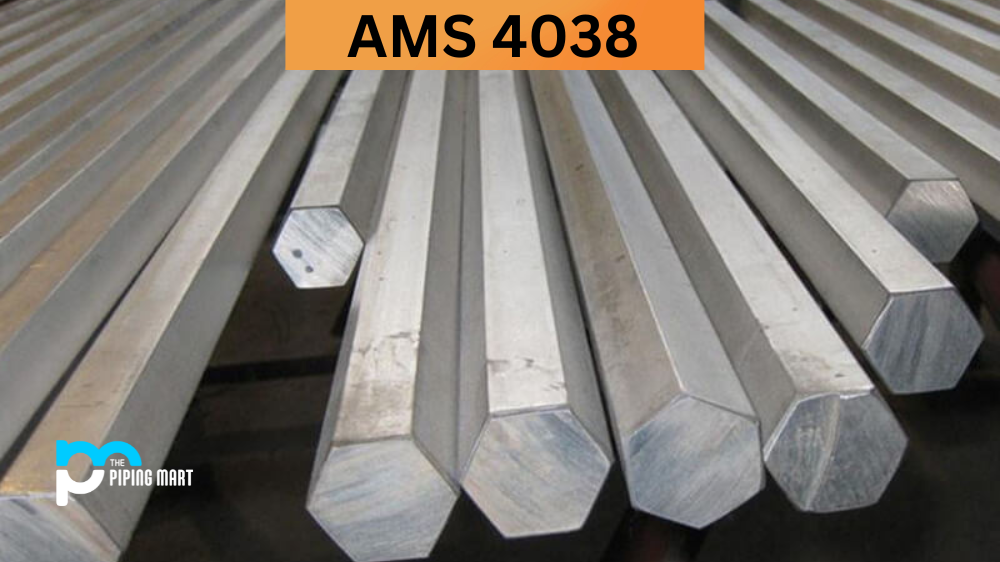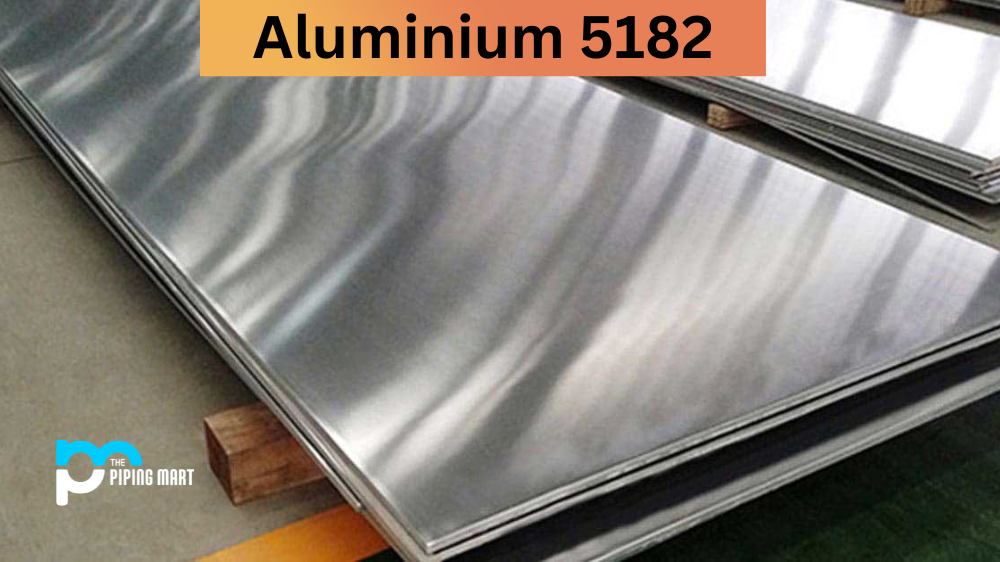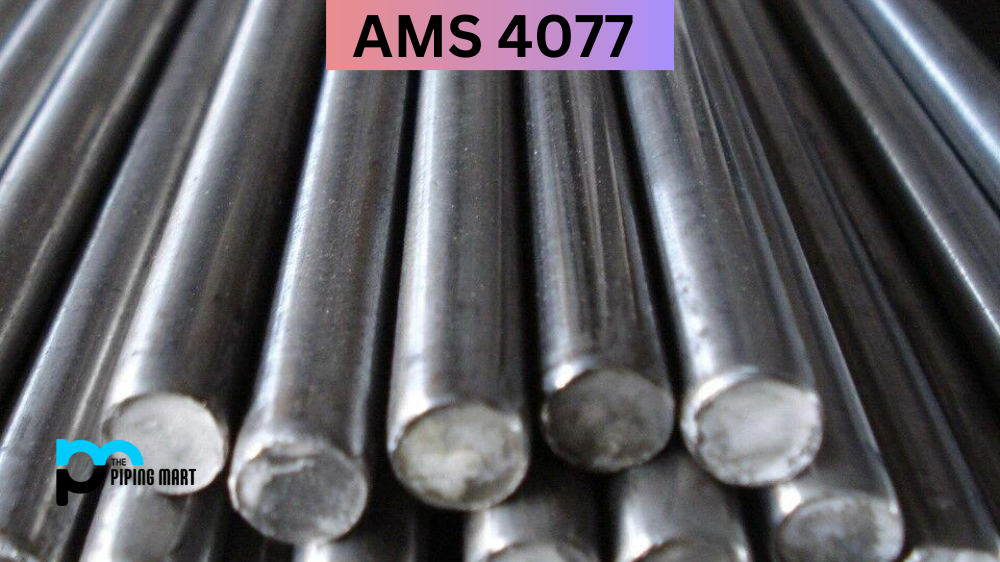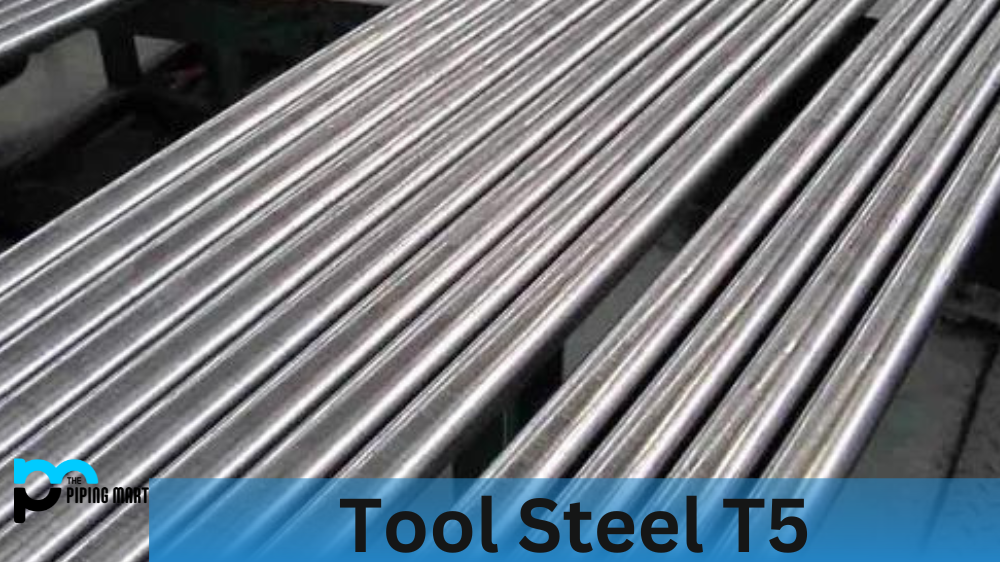When it comes to the aviation and aerospace industries, choosing the suitable material for each component and system is crucial. One of the most widely used materials for this purpose is AMS4038. AMS stands for Aerospace Material Specification, and AMS 4038 is an aluminium alloy with high strength and toughness, excellent corrosion resistance, and good machinability. This blog post will explore AMS 4038’s composition, physical and mechanical properties, hardness level, and heat treatment.
What is AMS 4038?
AMS 4038 (Aluminium Alloy 7075) is a specification for aluminium alloy 2024-T351. This alloy is characterized by its high strength and excellent fatigue resistance. It is commonly used in aerospace applications such as aircraft structures and wing spars. The AMS4038 specification outlines the chemical and mechanical properties that this alloy must meet to be considered suitable for aerospace applications. With its impressive strength and durability, aluminium alloy 2024-T351 has proven to be a reliable choice for aerospace engineers and manufacturers. If you’re interested in learning more about AMS 4038 and the properties of aluminium alloy 2024-T351, a wealth of information is available online and through industry publications.
What Form Is AMS 4038 Available at Piping Mart?
- Pipes
- Tubing
AMS 4038 Composition
AMS 4038 is an aluminium alloy that contains primarily copper and magnesium, with small amounts of silicon, iron, zinc, and manganese. The precise composition may vary slightly among manufacturers, but generally, AMS 4038 contains 4.4-5.1% copper, 0.5-1.2% magnesium, 0.15% max silicon, 0.5% max iron, 0.25% max zinc, and 0.15% max manganese. This composition gives AMS 4038 excellent mechanical properties while providing good resistance to pitting and crevice corrosion in marine and chloride environments.
| Component Elements Properties | Metric | English | Comments |
|---|---|---|---|
| Aluminum, Al | 87.1 – 91.4 % | 87.1 – 91.4 % | As remainder |
| Chromium, Cr | 0.18 – 0.28 % | 0.18 – 0.28 % | |
| Copper, Cu | 1.2 – 2.0 % | 1.2 – 2.0 % | |
| Iron, Fe | <= 0.50 % | <= 0.50 % | |
| Magnesium, Mg | 2.1 – 2.9 % | 2.1 – 2.9 % | |
| Manganese, Mn | <= 0.30 % | <= 0.30 % | |
| Other, each | <= 0.05 % | <= 0.05 % | |
| Other, total | <= 0.15 % | <= 0.15 % | |
| Silicon, Si | <= 0.40 % | <= 0.40 % | |
| Titanium, Ti | <= 0.20 % | <= 0.20 % | |
| Zinc, Zn | 5.1 – 6.1 % | 5.1 – 6.1 % |
AMS 4038 Physical Properties
AMS 4038 has a density of 2.78 g/cm³ and a melting point of 582-639 °C. Its thermal conductivity is 121-147 W/m·K, and its coefficient of thermal expansion is 22.4-23.6 µm/m·K. It is a non-magnetic material with good electrical conductivity, making it suitable for electrical conductors and components.
| Physical Properties | Metric | English | Comments |
|---|---|---|---|
| Density | 2.81 g/cc | 0.102 lb/in³ | AA; Typical |
AMS 4038 Mechanical Properties
AMS 4038 has excellent strength and toughness properties. Its ultimate tensile strength is 456 MPa, and its yield strength is 404 MPa. Its elongation at break is 12%, and its area reduction is 30%. It also has good fatigue resistance and fracture toughness. These properties make it ideal for aerospace components and structures requiring high strength and toughness.
AMS 4038 Thermal Properties
| Thermal Properties | Metric | English | Comments |
|---|---|---|---|
| CTE, linear | 21.6 µm/m-°C @Temperature -50.0 – 20.0 °C |
12.0 µin/in-°F @Temperature -58.0 – 68.0 °F |
|
| 23.4 µm/m-°C @Temperature 20.0 – 100 °C |
13.0 µin/in-°F @Temperature 68.0 – 212 °F |
||
| 23.6 µm/m-°C @Temperature 20.0 – 100 °C |
13.1 µin/in-°F @Temperature 68.0 – 212 °F |
AA; Typical; average over range | |
| 24.3 µm/m-°C @Temperature 20.0 – 200 °C |
13.5 µin/in-°F @Temperature 68.0 – 392 °F |
||
| 25.2 µm/m-°C @Temperature 20.0 – 300 °C |
14.0 µin/in-°F @Temperature 68.0 – 572 °F |
||
| Specific Heat Capacity | 0.960 J/g-°C | 0.229 BTU/lb-°F | |
| Thermal Conductivity | 130 W/m-K | 900 BTU-in/hr-ft²-°F | AA; Typical at 77°F |
| Melting Point | 477 – 635.0 °C | 890 – 1175 °F | AA; Typical range based on typical composition for wrought products >= 1/4 in. thickness. Homogenization may raise the eutectic melting temperature by 20-40°F but usually does not eliminate it. |
| Solidus | 477 °C | 890 °F | AA; Typical |
| Liquidus | 635.0 °C | 1175 °F | AA; Typical |
AMS 4038 Uses
AMS 4038 is used in various aerospace components and structures, such as aircraft frames, landing gears, wings, fuselage structures, and engine parts. It is also used in marine and offshore applications, such as boat hulls, fasteners, and seawater components. Its good machinability also makes it suitable for precision parts and components.
AMS 4038 Hardness
AMS 4038 has a Brinell hardness of 119-150, depending on its heat treatment. This hardness makes it suitable for components that require good wear resistance and durability, such as landing gears and engine parts. Its hardness can be increased through heat treatment processes such as annealing, solution heat treatment, quenching, and artificial ageing.
AMS 4038 Heat treatment
The heat treatment of AMS 4038 pipes is critical for achieving the desired mechanical properties and hardness level. The typical heat treatment process consists of solution treatment followed by ageing. The solution treatment involves heating the material above its recrystallization temperature (480-540 °C) and quenching it in water or brine to maintain its mechanical and corrosion properties. The ageing involves reheating the material to a lower temperature (150-170 °C) for several hours to achieve the desired strength level and hardness.
Conclusion
In conclusion, AMS 4038 material is an excellent material for aerospace, marine, and offshore applications that require high strength, toughness, and corrosion resistance. With its composition, physical and mechanical properties, uses, hardness level, and heat treatment, AMS 4038 provides a reliable and durable option for many components and systems in these industries. By understanding the properties and characteristics of this material, engineers and designers can make informed decisions when selecting materials for their projects.





